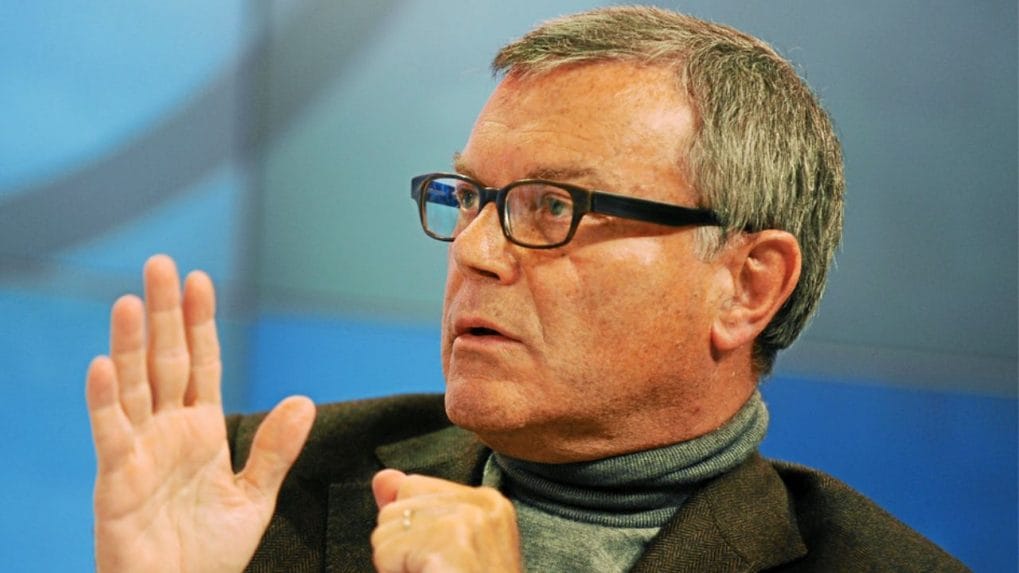“There’s buzz around in India, but no real chance,” Sir Martin Sorrell on Dentsu buyers
S4 Capital has ruled out any interest in acquiring Dentsu’s international business. Martin Sorrell said S4’s digital-only, data-driven approach is fundamentally different from Dentsu’s operations, making the firm unlikely to pursue the potential deal.
ADVERTISEMENT
In a rare moment of candour for Japan Inc., Dentsu Group’s decision to consider a sale of its international business has drawn attention across the global advertising industry. Martin Sorrell, founder of WPP and now executive chairman of S4 Capital, described the move as both “brave” and “unusual,” applauding the Japanese giant for acknowledging the difficulties it has faced outside its home market.
“It’s very unusual for a Japanese multinational to admit publicly that they need help. And I applaud that and commend that,” Sorrell remarked.
According to him, the deliberations over Dentsu’s international arm are not new. “From what I know, they’ve been looking for a partner since the time Tim Andree was on the board. I am told they had mandated an investment bank, received an offer from private equity for the international business, but the board and CEO said no. That’s when Andree resigned,” Sorrell said.
The reference to Tim Andree, a longtime Dentsu executive who once served as the architect of its international ambitions, underscores how the group has struggled with the complex task of integrating acquisitions abroad. Dentsu’s $5 billion acquisition of Aegis Group in 2013 was its boldest overseas move, giving it scale in Europe and North America, and adding well-known brands like Carat, iProspect and Vizeum. But more than a decade later, questions remain over whether the group successfully knitted these disparate agencies into a coherent whole.
S4 Capital Not in the Running
Industry speculation had suggested that Dentsu’s assets could attract interest from global rivals, including Sorrell’s own S4 Capital. But he was quick to dismiss the chatter. “Our business is purely digital, very different to Dentsu’s both domestically and internationally,” he said firmly.
He explained that S4 Capital operates on four founding principles: being digital-only, data-driven, faster-better-cheaper, and run under a unitary brand. “You have to measure that against Dentsu International, and there are a lot of differences,” Sorrell said, making it clear that his firm has no plans to bid.
Sorrell also pointed to growing interest in India around the possible sale. “I think there are a number of people buzzing around India who think they could acquire Dentsu International. And I don’t think they have any chance of doing it whatsoever,” he said.
His comment highlights India’s rising profile in global advertising. With its expanding economy and growing consumer base, the country has become a key growth market for both global holding companies and independents. Still, Dentsu’s international scale and valuation make it an unlikely target for local players.
Fortress Japan, Fragile Abroad
At home, Dentsu remains a dominant force. Alongside Hakuhodo, it commands an outsized share of the Japanese market, supported by deep client relationships with major brands such as General Motors and BMW. But replicating that dominance internationally has proved elusive.
“They’re very strong in Japan, but internationally they’ve found it very difficult to acquire and integrate,” Sorrell said. “Japan is a fortress, with Dentsu and Hakuhodo dominating. They have very good client relationships with GM, BMW and others, but maybe it is difficult for a Japanese company to get its arms around international operations.”
Analysts often point to cultural differences, integration challenges, and the heavy reliance on domestic revenues as reasons why Japanese companies, including Dentsu, have struggled to globalize.
The possible sale of Dentsu International could mark a turning point in the group’s century-old history. With digital transformation reshaping advertising, and traditional holding companies under pressure to streamline operations, Dentsu’s move signals a willingness to rethink its global footprint.
Sorrell’s comments add weight to the significance of the moment. For him, Dentsu’s frankness in confronting its challenges sets it apart. “It’s a brave decision,” he said.
Whether the group ultimately finds a buyer, or chooses to restructure internally, the outcome will reverberate across the global advertising industry. For now, Dentsu remains strong in Japan but faces the difficult task of deciding what to do with its sprawling and often unwieldy international business.
Read More: Layoffs: Japan's Dentsu to cut 3,400 jobs abroad as part of restructuring effort
Read More: WhatsApp Sting: Dentsu CEOs secretly fed chat intel to CCI amid probe


